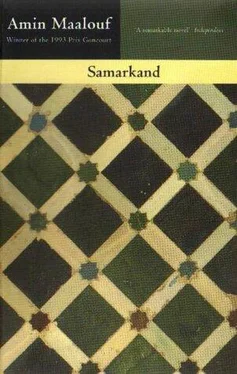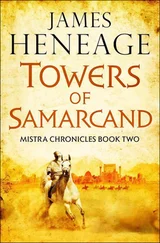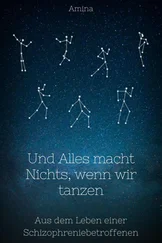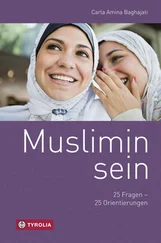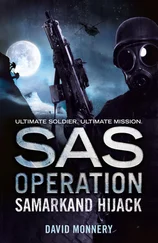The challenge stimulated and amused me. I delighted in discovering affinities with my own language, as well as with various Romance languages. Father, mother, brother, daughter in Persian were ‘pedar’, ‘madar’ ‘baradar’ and ‘dokhtar’ , and the common Indo-european roots can hardly be better illustrated. Even in naming God, the Muslims of Persia say ‘Khoda’ , a term much closer to the English ‘God’ or the German ‘Gott’ than to ‘Allah’ . In spite of this example, the predominate influence is that of Arabic which is exercised in a curious way: many Persian words can be replaced arbitrarily by their Arabic equivalent. It is even a form of cultural snobbery, much appreciated by intellectuals, to pepper their speech with terms, or with whole phrases, in Arabic — a practice of which Jamaladin was particularly fond.
I resolved myself to apply myself to Arabic later, but for the moment I had enough on my plate trying to understand Monsieur Nicholas’ texts, which apart from a knowledge of Persian was providing me with useful information about the country. It was full of conversations such as:
‘Which products could one export from Persia?’
‘Shawls from Kirman, fine pearls, turquoise, carpets, tobacco from Shiraz, silks from Mazanderan, leeches and cherrywood pipes.’
‘When travelling, should a cook be taken along?’
‘Yes, in Persia one cannot move without a cook, a bed, carpets and servants.’
‘What foreign coins are used in Persia?’
‘Russian Imperials, Dutch carbovans and ducats, English and French coins are very rare.’
‘What is the current king called?’
‘Nasser ed-din Shah.’
‘It is said that he is an excellent king.’
‘Yes. He is extremely benevolent to foreigners and extremely generous. He is highly educated, with a knowledge of history, geography and drawing; he speaks French and is fluent in the oriental languages — Arabic, Turkish and Persian.’
Once at Trebizond I took a room in the Hotel d’ltalie, the only hotel in town, which was comfortable if one could but forget the swarms of flies which transformed every meal into an uninterrupted and exasperating gesticulation. I resigned myself to imitating the other visitors by employing for a few meagre coins a young adolescent whose job was to fan me and keep the insects away. The most difficult thing was convincing him to get them away from my table without squashing them before my eyes, in between the dolmas and the kebabs. He obeyed me for some time, but as soon as he saw a fly within reach of his fearsome instrument, the temptation was too great and he would swat.
On the fourth day I found a place on board a freight steamer running the Marseille-Constantinople-Trebizond line. It look me as far as Batum, the Russian port on the east of the Black Sea, where I took the Transcaucasian Railway to Baku on the Caspian Sea. The Persian consul there received me so warmly that I hesitated to show him Jamaladin’s letter. Would it not be better to remain an anonymous traveller and not arouse any suspicions? However, I was beset by some scruples. Perhaps the letter contained a message concerning something other than myself and I therefore did not have the right to keep it to myself. Abruptly I thus resolved to say, in any enigmatic way:
‘We have perhaps a friend in common.’
I took out the envelope. The consul opened it carefully; he had taken his gold-rimmed glasses from his desk and was reading when I suddenly noticed that his fingers were trembling. He stood up, went over to lock the door to the room, placed his lips to the paper and remained so for a few seconds as if in contemplation. Then he came over to me and held me as if I were a brother who had survived a shipwreck.
As soon as he had managed to recompose his expression, he called his servants and ordered them to fetch my trunk, to show me to the best room and prepare a feast for the evening. He kept me there for two days, neglecting all his work in order to stay with me and question me ceaselessly about the Master, his health, his mood and particularly what he was saying about the situation in Persia. When it was time for me to leave, he rented a cabin for me on a steamer of the Russian Caucaset-Mercure Line. Then he entrusted me with his coachman to whom he gave the task of accompanying me to Kazvin and to stay at my side as long as I had need of his services.
The coachman immediately proved to be extremely resourceful, and often even irreplaceable. It was not I who would have know to slip some coins into the hand of that proudly moustached customs officer so that he would deign to leave his kalyan pipe for a moment to come and inspect my huge Wolseley. It was the coachman again who negotiated with the Roads Administration for the immediate provision of a four-horse carriage, although the official was imperiously inviting us to come back the next day and a seedy innkeeper, who was most apparently his accomplice, was offering us his services.
I consoled myself for all these difficulties of the route by thinking of the suffering of the travellers who had preceded me. Thirteen years earlier, the only way to Persia had been the old caravan route which started at Trebizond and led toward Tabriz through Erzerum, with its forty staging points taking six exhausting and expensive weeks and which was sometimes truly dangerous owing to the incessant tribal warfare. The Transcaucasian had revolutionized matters. It had opened Persia to the world and one could reach that empire with neither risk nor major discomfort by taking a steamer from Baku to the port of Enzeli, then it only took one more a week, on a road suitable for motor vehicles, to reach Teheran.
In the West, the cannon is an instrument for war or ceremonial occasions; in Persia it is also an instrument of torture. If I speak of it, it is because I was confronted by the spectacle of a cannon which served the most horrific purpose as I reached the town limits of Teheran — a man, who was tied and whose head was the only part of him visible, had been placed in the large barrel. He had to stay there, under the sun and without food or water until death came to him; even then, I was told, the custom was to leave his body exposed for a long time in order to make the punishment an example, to inspire silence and dread in all those who passed through the city gates.
Was it because of this first image that the capital of Persia exerted such little magic on me? In the cities of the Orient, one always looks for the colours of the present and the shades of the past. In Teheran I came up against none of that. What did I see there? Thoroughfares which were too wide, linking the rich of the northern districts to the poor of the southern districts, a bazaar absolutely swarming with camels, mules and gaudy materials, but which could hardly bear comparison with the souks of Cairo, Constantinople, Isfahan or Tabriz. And wherever one’s gaze alighted there were innumerable grey buildings.
It was too new. Teheran had too short a history! For a long time it had only been an obscure dependency of Rayy, the prestigious city of the scholars which was demolished at the time of the Mongols. It was not until the end of the eighteenth century that a Turkoman tribe, the Qajars, took possession of the area. Having succeeded in subduing the whole of Persia by the sword, the dynasty elevated its modest abode to the rank of capital. Until then, the political centre of the country had been in the south, at Isfahan, Kirman or Shiraz. That is to say that the inhabitants of these cities had nothing good to say about the ‘brutish northerners’ who governed them and whose lack of knowledge included even that of their language. The reigning Shah, upon his accession to power, needed an interpreter to address his subjects. Anyway, it seems that after that he acquired a better knowledge of Persian.
Читать дальше
